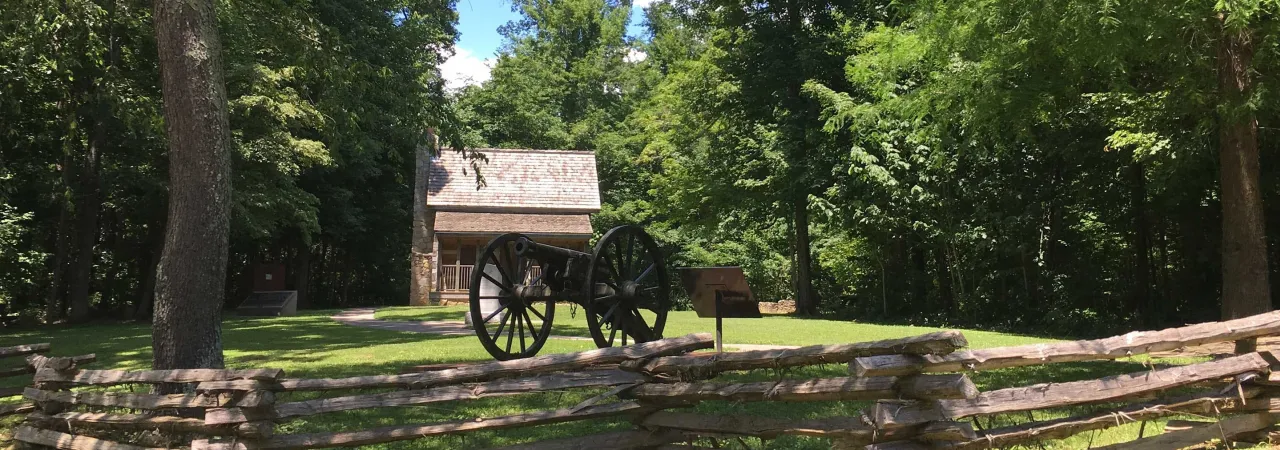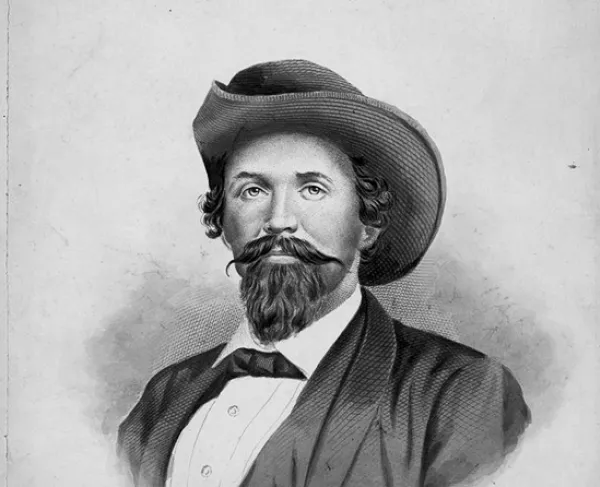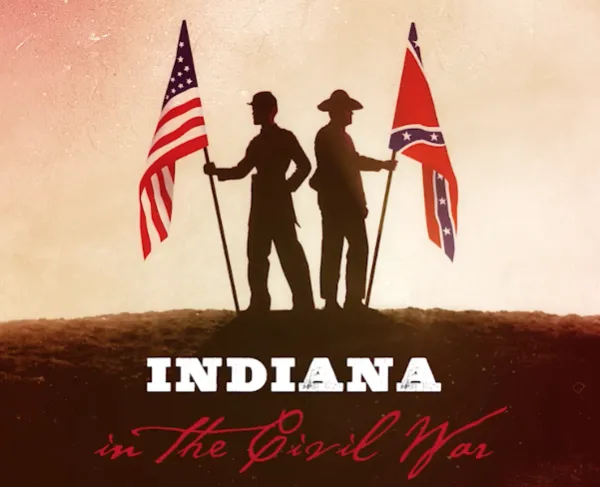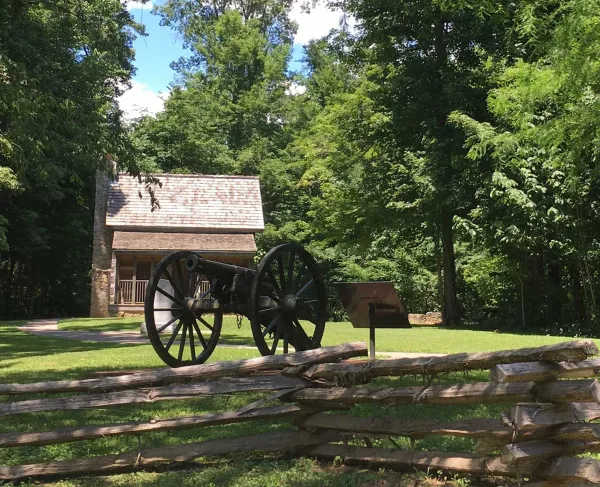
Corydon
Corydon, IN | Jul 9, 1863
After crossing the Ohio River into Indiana at Brandenburg, Kentucky, Confederate cavalry commander John H. Morgan attacked and defeated over 400 Federals in the Battle of Corydon, Indiana, the only Civil War battle in the state.
How It Ended
Confederate Victory. After being initially stopped in their attacks, Morgan brought up the rest of his cavalry command and surrounded the Indianans. In one grand assault, Morgan’s command overran the Hoosier’s positions, capturing most of the force.
In Context
In the summer of 1863, Confederate cavalry commander John H. Morgan launched his most extensive expedition, known as the “Great Raid.” His goal was to move through the state of Kentucky and into Indiana and Ohio. After crossing the Cumberland River into Kentucky, his seasoned cavalry command moved quickly through the state but were slowed at the Battles of Tebbs Bend and Lebanon. Nevertheless, by early July, he was on the banks of the Ohio River.
By July 8th, Morgan's column made it to Brandenburg, Kentucky, where his command quickly captured the steamships Alice Dean and John T. McCombs. During his crossing, Morgan had to fight off the lead elements of Union General Edward Hobson’s pursuing command on the Kentucky side and elements of the Indiana Legion, the modern-day version of the National Guard, on the Indiana side. Finally, after engaging the inexperienced Hoosiers, Morgan’s command made it to the Indiana side of the river. During the night, elements of the 6th and 8th Indiana Legion under the overall command of Colonel Lewis Jordan prepared defenses on the outskirts of Corydon, Indiana, the first town in Morgan’s path.
450
2,400
On July 9th, Morgan’s column moved out of their camps and towards the Federal positions near Corydon along the Mauckport Road. At around 11:30 am, lead elements of Morgan’s command found the Hoosiers dug in almost a mile south of the town of Corydon. At around 12:00 pm, Morgan’s command launched their first attack which was repulsed. During the second assault, Morgan’s command tried to outflank the Federal line but was stopped due to the superior firepower of the Hoosiers and their Henry rifles. After the third charge met the same fate, reinforcements arrived, bolstering the Confederate numbers. Seeing that more Confederates had arrived on the field, especially artillery, Colonel Jordan ordered his outnumbered command to retreat.
369
51
The Hoosier retreat soon became a rout once Morgan’s command moved in for the final attack. Out of the 450 men engaged in the fight, less than 100 escaped. Soon after Lewis’s defeat, Morgan’s command pillaged the town before departing.
Though deep in Union-held territory, the State of Indiana held a border with the slave state of Kentucky. Since Kentucky’s ties were divided throughout the commonwealth, the Hoosier state faced several threats of Confederate presence from both raiders and guerrillas. To help protect its southern border, the Indiana legislature created the Indiana Legion, a state-wide militia organized by county. For the most part, Legion units saw no combat other than pursuing partisan forces in Kentucky. In 1863, the 6th and 8th Indiana Legions were defeated by Confederate forces at the Battle of Corydon.
Designed in 1860 by Benjamin Tyler Henry, the Henry rifle played an essential role in the Battle of Corydon, Indiana. Though vastly outnumbered, the Indiana Legion had one advantage over the Confederates: a company of men with Henry rifles. These guns could shoot up to sixteen shots in a minute and range up to 200 yards. During the battle, the company was placed on the extreme right of the Federal lines along the Amsterdam Road. They were instrumental in throwing back the Confederate attacks three times before overwhelming numbers forced the Hoosiers to retreat from their lines.
Related Battles
450
2,400
369
51







